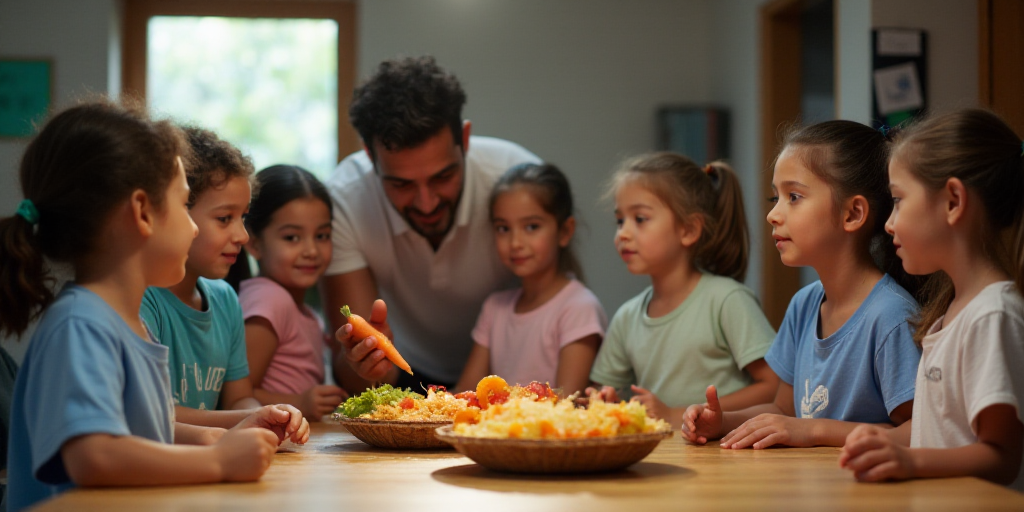Background on the Initiative
In Puebla, Mexico, a significant shift is underway in the school food supply chain. Following the ban on unhealthy “chatarra” (junk) food in schools, approximately 250 microenterprises and cooperatives now have the opportunity to supply fresh, healthy products. Víctor Gabriel Chedraui, Secretary of Economic Development and Labor, highlighted this positive development.
Key Figures and Relevance
Víctor Gabriel Chedraui plays a crucial role in Puebla’s economic and labor development. His recent comments underscore the importance of this initiative in promoting healthier eating habits among students and supporting local economies.
Current Status and Progress
Currently, around 40 rural cooperatives have successfully met the necessary requirements and are already supplying schools with fresh produce. An estimated 80 products are being purchased by schools, with 28 being the most popular, including dehydrated fruits, quinoa, and other nutritious options.
Catalog and Expansion
A catalog of these enterprises has been created to assist school directors and parent committees in selecting suitable products for their schools’ stores. So far, 110 schools have started acquiring products through school cooperatives.
Chedraui expressed optimism that more schools would follow this example, contributing to the local economy and promoting healthier choices for students.
Scale and Capacity
Despite the progress, Chedraui acknowledged that there is ample room for growth. With 14,285 basic level schools in Puebla’s education system (82% public and 18% private), the potential for cooperative expansion is significant.
He advised that microenterprises and cooperatives must assess their production capacity and determine how many schools they can sustainably serve.
Support and Compliance
Cooperative Development
Chedraui explained that cooperatives are transitioning from a model of limited, localized distribution to one with broader reach. This shift aims to expand their market presence.
Regulatory Support
To ensure compliance with regulations, particularly those set by the Federal Commission for Protection against Sanitary Risks (Cofepris), Chedraui emphasized the role of the state’s health department and its Protection of Risks Sanitary Directorate.
This collaboration is part of the federal government’s “Vive Saludable, Vive Sano” (Live Healthy, Live Well) strategy, which aims to provide conservant-free, nutrient-dense food options in school stores.
Nutritional Guidance
Chedraui also mentioned the assistance provided to microenterprises and cooperatives in developing nutritious product offerings. The Centros Innovadores de Transformación (CITRAS) initiative, located in technology universities, will further support cooperatives in creating products that meet regulatory standards.
Key Questions and Answers
- What is the main goal of this initiative? The primary objective is to replace unhealthy school food options with fresh, nutritious products supplied by local cooperatives, promoting healthier eating habits and supporting the local economy.
- How many schools are currently participating? Approximately 110 schools have started acquiring products through school cooperatives.
- What types of products are being purchased by schools? Schools are purchasing around 80 products, with dehydrated fruits, quinoa, and other nutritious options being among the most popular.
- What challenges do cooperatives face? Many cooperatives are small and struggle to meet Cofepris requirements. However, with support from the state health department and its Protection of Risks Sanitary Directorate, these challenges are being addressed.
- What role do technology universities play in this initiative? Technology universities host Centros Innovadores de Transformación (CITRAS), which provide guidance and support to cooperatives in developing products that meet regulatory standards.






